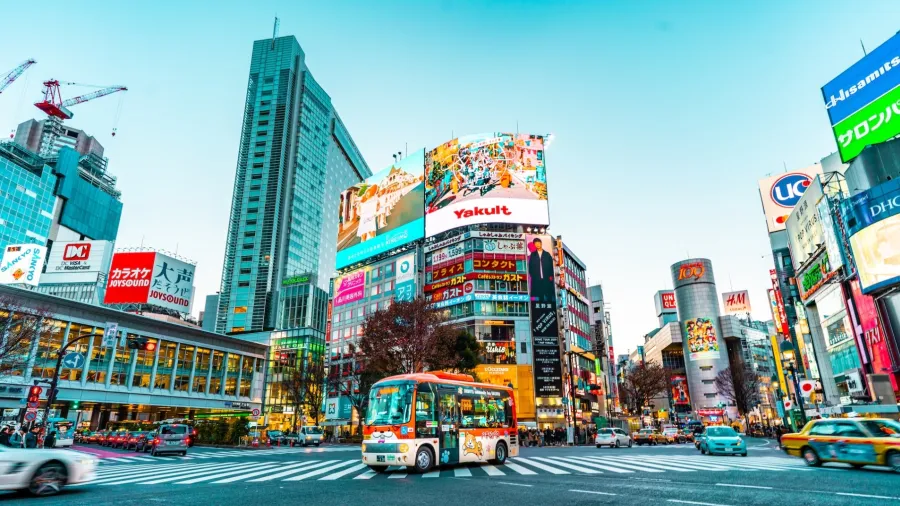
Tokyo seeks “friendliest city” title for local, foreign startups
It looks to increase its number of unicorns and startups tenfold over the next 5 years.
Come November 27, Tokyo will see a new incubation space for startups open with the launch of The Tokyo Innovation Base (TIB). The facility–funded by the local government and private sector partners – features three whole floors of co-working space and even a function hall for events. It is expected that hundreds of local and foreign startups will be housed in the facility for a duration of about 6 months to a year, with TIB serving as their initial base as they set-up shop in the city.
The launch of TIB is just the latest in the Tokyo Metropolitan Government’s (TMG) efforts to attract foreign startups and investments into the city under its 10 × 10 × 10 Innovation Vision: that is, to increase the number of global unicorns, startups, and public-private collaboration practices tenfold over the next five years.
Japan has been strengthening its startup ecosystem in recent years, naming it as a key factor in its bid to be a global financial city and to increase competitiveness. Tokyo officials in particular are seeking the title of world’s most startup friendly city.
To encourage more startups to enter the market, Japan as a whole is investing JPY10 trillion for startups, coming from government funds, the private sector, government-owned financial institutions, and venture capital firms.
Foreign startup support
Even before TIB, Tokyo already offers an extensive list of accelerator programs and support initiatives across the globe, all aimed at helping foreign startups enter the Japanese market.
Today, there are already various support services available to foreign startups, catering to different levels of interest, officials told Singapore Business Review.
In Singapore, TMG–under its Invest Tokyo initiative–has set-up “Access To Tokyo”. Access to Tokyo is an overseas consultation which promises to provide Singaporean startups with insights on the Japanese market as well as answer questions on launching their operations in Tokyo. The overseas consultation desk is also available in San Francisco, London, and Paris.
Amongst support offered include free consulting services, such as helping startups find good locations to rent offices for their Japanese base of operations, as well as help in hiring the right local talent in Tokyo. The support desk also offers to help startups with forming their entry strategies for Japan, with free market analysis services, business partner identification services, and cost simulation services.
For startups worried about the bureaucratic processes involved in launching their business, fear not: Tokyo is offering assistance to help them set-up and register their business. A subsidy may also be provided to help startups establish their offices.
Beyond providing business support, the government is also offering migration support to staff and owners of the startups, with free consulting services through the Business Development Center TOKYO (BDCT).
Green-rated startups have the chance to receive subsidies for office rent, recruitment, and personal expenses under the Subsidy for Attracting Green Transformation. Startups in all fields can still access business support, living support, and financial one-stop support services.
Social change
Officials have particularly expressed interest in supporting disruptors who will drive both social change and a mindset change in Tokyo.
“We [recognize] that the world is facing difficulties and social issues like climate change. The Tokyo government wants to support the startups that help solve these social issues,” Keiichi Yoshimura, Director General, Office for Startup and Global Financial City Strategy, told Singapore Business Review. Established in November 2021, the Global Financial City Strategy looks to create a sustainable finance society to accelerate change, and startups leading in innovation.
These, along with the government’s keenness to support sustainable-focused startups, and the potential associated with Japan’s approximately JPY2,100 trillion of household financial assets, are factors that could contribute in helping Japan solve social challenges globally.
“By tapping on such an advantage of Japan, we’d like to contribute to solving global challenges through promotion of investment,” said Yoshio Horimoto, Vice Commissioner for Strategy Development and Evidence-based Policymaking Strategy Development and Management Bureau, Financial Services Agency of Japan, speaking to attendees of the Tokyo Sustainable Finance Forum held on 6 October.
“We have a huge number of companies that have a huge power of sustainable technology. Such groundbreaking technologies are vital, and these startups are vital, as we try to achieve complete neutrality and address social challenges,” Horimoto added.
A cultural shift
Tokyo’s government officials are also hopeful that nurturing its fledgling startup economy will raise the country’s competitiveness globally.
“We need a role model startup, a unicorn, a company which will attract investors or attract Japanese people to launch startups. One of the ways is to attract foreign startups into Tokyo,” Shinichi Fukunaga, Senior Director for Special Zone and Regulatory Reform Office for Startup and Global Financial City Strategy, told Singapore Business Review.
Fukunaga noted that the TMG is looking to build more ‘entrepreneurial spirit’ among the younger generation, noting that Japanese people do not want to take risks. This may be part of the reason for the lack of startups, or willingness to join startups, amongst the youth, he said.
A cultural shift is much needed: in a 2022 study by Nippon Foundation gauging young peoples’ views on their willingness and hope of changing the society, less than 3 in 10 or 26.9% of Japanese youth aged 18 years old believe that they can bring about greater societal change.(1)
Despite this, officials believe that there is much hope for young people to change society and the startup scene.
Tokyo has attracted keen interest from startups globally, evidenced by its startup event earlier this year, City-Tech Tokyo. Held in February 2023, City-Tech Tokyo attracted over 25,000 attendees hailing from over 60 countries and 290 cities worldwide. Over 300 startups participated, as well as 450 venture capital firms.
In 2024, the TMG is ramping up its startup event with Sustainable High City Tech Tokyo or SusHi Tech Tokyo. The month-long event is expected to see 500,000 visitors across 40 cities participate– 4,000 participants of which are startups.
Director General Yoshimura, for his part, expressed his confidence in Tokyo’s future as a global startup hub.
“I believe that Tokyo has potential for innovation and business development. Tokyo has one of the world’s largest economies and is home to world class companies and universities. It also has a solid infrastructure… stable social order, and commitment to the rule of law,” he said.


















 Advertise
Advertise








